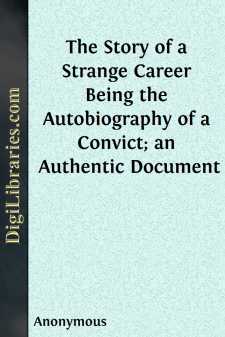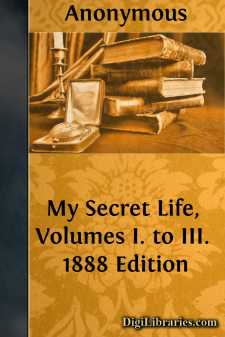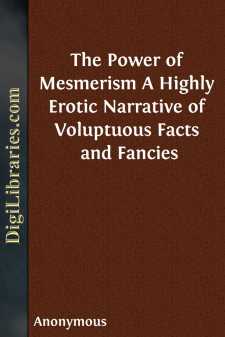Categories
- Antiques & Collectibles 13
- Architecture 36
- Art 48
- Bibles 22
- Biography & Autobiography 813
- Body, Mind & Spirit 142
- Business & Economics 28
- Children's Books 16
- Children's Fiction 13
- Computers 4
- Cooking 94
- Crafts & Hobbies 4
- Drama 346
- Education 46
- Family & Relationships 57
- Fiction 11829
- Games 19
- Gardening 17
- Health & Fitness 34
- History 1377
- House & Home 1
- Humor 147
- Juvenile Fiction 1873
- Juvenile Nonfiction 202
- Language Arts & Disciplines 88
- Law 16
- Literary Collections 686
- Literary Criticism 179
- Mathematics 13
- Medical 41
- Music 40
- Nature 179
- Non-Classifiable 1768
- Performing Arts 7
- Periodicals 1453
- Philosophy 64
- Photography 2
- Poetry 896
- Political Science 203
- Psychology 42
- Reference 154
- Religion 513
- Science 126
- Self-Help 84
- Social Science 81
- Sports & Recreation 34
- Study Aids 3
- Technology & Engineering 59
- Transportation 23
- Travel 463
- True Crime 29
The Story of a Strange Career Being the Autobiography of a Convict; an Authentic Document
by: Anonymous
Description:
Excerpt
INTRODUCTION
The story that follows this introduction is literally true. There died lately, in a Western State prison, a man of the class known as habitual criminals. He was, at the time of his death, serving out a sentence for burglary. For thirty years he had been under the weight of prison discipline, save for short periods of freedom between the end of one term and the beginning of another.
Because of this man's exceptional qualities, as contrasted with those of the multitude of criminals, he was induced, semi-officially, in a friendly way, to write the story of his life. He accepted the proposition made to him, though, consistent with his quality, not quite fulfilling his pledge, omitting, as he did, certain hard details of the later part of his criminal career. This was but natural, and, perhaps, it is the one incident which shows that the man realized, in some measure, the truth as to his own character.
The account which makes this book was written in 1897 and 1898, when its author was in the free world. It has been thought best, out of regard for an estimable family, to omit from the printed work the real name of the writer. Another name has been substituted for the actual one, but, with the exception of a few necessary technical corrections, and changes of names of people and of one vessel—the one in which the first voyage was made—the manuscript appears almost as it left the hands of its author.
As a true tale, as a study of sociology, as a picture of one human life somehow bent and twisted from the normal, this work, it seems to the editor, is one of the most surprising of productions. Its frank unconsciousness, its striking revelations, its absence from all pose, combine to make it unique among the writings of men. The Confessions of Rousseau appear, in phases, almost artificial compared with the simple but startling revelation which is here given.
It was not hopelessness, nor recklessness, nor penitence, which made this man write down unflinchingly what he remembered of the story of his life. A cheerful reminiscent vein runs throughout all he tells. His sense of humour is ever present. Nowhere appears a hint of the tragedy of his experience. Of that he was not conscious. He was as free from remorse and self-upbraiding as a wild animal or a tree.
The story, one would imagine, should appeal to those who think. From the beginning can be seen, in the character of the runaway sailor and one-time officer of the navy, traits which indicate his absolute failure, eventually, as a man. He drifts. He is irresponsible. He escapes from one dilemma only to get into another. He is thriftless, and takes no thought for the morrow. He has no regard for the truth, nor any for the rights of property. He lies and steals simply because lying and stealing are the obvious things for him to do. He does not think of doing anything else. The manner in which the story is told is characteristic, and should open the eyes of sentimentalists as to the real attitude of habitual criminals. Never, from first to last, is there an expression of genuine shame or the least contrition. There are, it is true, occasional sentences in which the man calls himself a fool, and betrays a glimmering of appreciation of the general want of sense and wisdom in his course, but there is no ring of sincere repentance nor of sorrow over a wasted life. This extraordinary character is simply of the opinion that he has not been clever enough. He never suspects that he has not been good enough to live a normal life among normal people. The truth is, he had no clear ideas of right and wrong.
Released from prison, and glad to be free, he always declared that now he was determined to "keep out of trouble." With him "trouble" meant "prison," and nothing else. Inevitably, surely, certainly, he was drawn into ways of crime....












